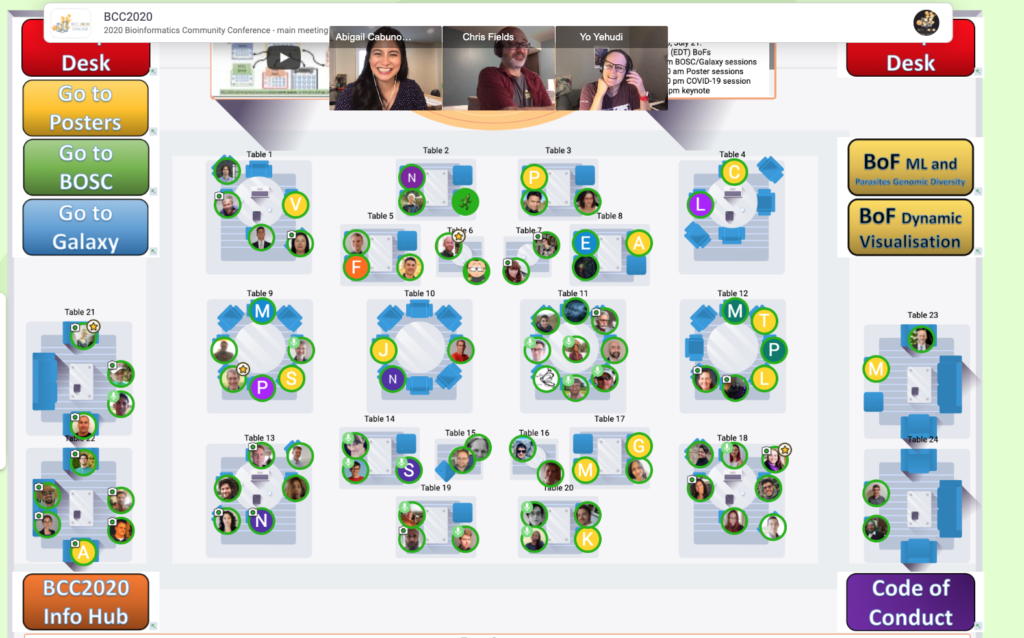BCC2020 (the collaborative BOSC + GCC meeting) was held online, with over 800 people registered for some part of the meeting. We used Remo.co as the technology platform, along with Discord for chat. Read about why we chose those, how it worked out, and our tips for others who are organizing virtual conferences here.
 “Table view” in Remo during BCC2020
“Table view” in Remo during BCC2020

